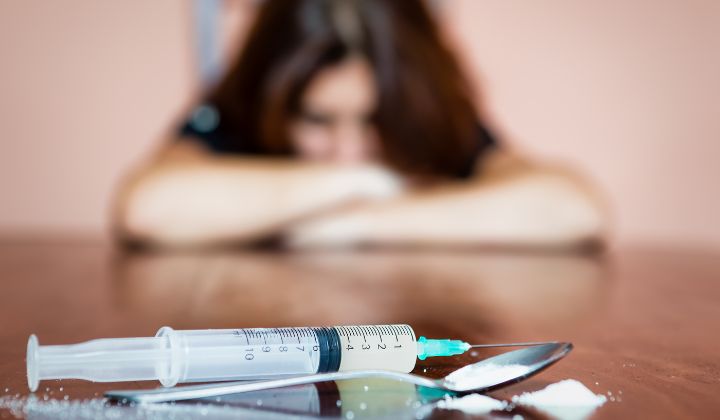3 Common Reasons Why Addicts Relapse When Things Are Good
Whether you’re a parent, spouse, or sibling of an addict in recovery, it can be tough to watch them go through the various struggles and stages of early recovery. One phenomenon that sometimes baffles loved ones and significant others is the fact that addicts will often relapse when things are good.
Addicts may relapse when things are good due to a combination of factors such as complacency, small distractions piling up, or dishonesty about an issue brimming under the surface. When life appears stable, it’s common to underestimate the ongoing need for support and step towards a relapse.
Though we all intuitively understand that relapse is a possibility once our loved one has entered recovery, our instinct is to believe that relapses are inspired by bad news, events, or emotional down turns.
Though it is certainly possible for an addict to relapse in response to feeling overwhelmed by a perceived negative experience or emotion, it’s often the case that addicts will relapse when things appear to be going well.
So, why do addicts relapse when things are good?
The most likely reason: Complacency in recovery
One phenomenon we see a lot in the recovery world is that drug users will often “let off the gas” in their recovery journey when things are good. This issue is so common that we actually have an acronym for it: Sobriety Loses Its Priority (SLIP)!
It’s not hard to see why: substance users enter recovery because things were really, really bad. Addicts commonly associate the recovery process with running from pain. No more pain, no more need for recovery!
As an example, we see this very commonly around the 6 to 9 month mark in recovery. Around this time, the sting and humiliation that drove them into recovery has largely worn off. Perhaps some lingering issues still persist, but in general, things are good. They are working, they are paying bills, they are developing trust with important people, and they have a good social group.
During this time, it’s common for recovering individuals to lose the motivation to hit meetings, walk through the 12 steps, or keep appointments with sponsors and sponsees.
Left unchecked, this type of complacency in recovery can lead to a relapse.
Another Possibility: Tiny, compiling issues
The next most common reason that addicts relapse when things are good is that they are actually struggling with many small issues that eventually overwhelm them.
A common analogy we use in counseling drug users is that we have an “elephant gun,” but not a very good “ant gun.” Hear us out:
What we mean is that addicts who are committed to their recovery are often very good at buckling down and getting to meetings when things have gone very sideways in their lives (the elephant). However, when tiny issues arise (ants), they tend to lie to themselves and say that these small issues are not that big of a deal.
This can lead to a “death by a thousand cuts” effect, whereby an addict will slowly suffer with small issues that compile until they eventually realize they are really struggling.
This type of struggle is very common in recovery, and it can generally be solved with a good heart-to-heart with a sponsor, trusted friend in recovery, or even a therapist/counselor.
However, if this type of emotional exhaustion is allowed to continue long enough, it can lead to a relapse.
Lastly: Things aren’t actually as good as they seem
One thing we hear from parents or family members in our program from time to time is that their loved one “seemed” to be doing good. Maybe they had a job, maybe their grades in school had improved, maybe they had just recently hit a major milestone in recovery.
However, substance users are very practiced at allowing issues to brim under the surface without necessarily telling anyone: it’s one of the primary reasons we stress honesty as such an important tenet of recovery.
It’s often the case that an addict or former problem drug user appears to be doing well, but is actually struggling emotionally. Maybe they are overwhelmed by the number of distractions present in their life after they’ve finished the Aftercare process, or maybe there is a major issue present that they aren’t discussing with anyone in their lives.
At this point, it’s common for things to appear to be good in the recovering person’s life, while under the surface, they feel they are barely treading water. If the recovering individual doesn’t begin to take care of these emotional issues, it’s very possible that a relapse is in their future.
Can you keep an addict from relapsing?
For many parents and family members, this is the million-dollar question. It’s hard to watch your loved one struggle. We often state that “addiction is a family disease,” and when we break this down literally, what we mean is that: addiction puts the entire family in a state if dis-ease.
The truth is that a drug user in recovery is in charge of their own life. We understand that this can be hard to hear for family members. The reality is that there are things we can do to support the addict in our lives, but we cannot control them.
In fact, our attempts to control them often end up driving a wedge in the relationship unnecessarily, cutting off the potential for future support.
If you’re looking for ways to support the addict, rather than control the addict in your life, we recommend:
- Start by taking care of yourself: Ask yourself, do you have fear or anger that you need to deal with first? Perhaps a conversation with an Alanon or parent group sponsor, or a professional therapist or counselor is in order.
- Listen without judgement: Listen to what the loved one in your life is telling you, and ask if they want to hear feedback before providing it.
- Double-check that your boundaries are solid: Are there some boundaries that you’ve established in the past that need to be re-established? Do you feel good about those boundaries, or do some of them need to change?
- Attend your own meetings and connect with your own support group
Avoid the temptation to over-analyze
It can be tempting to read through the points above and try to dissect how the addict in your life is doing. We would encourage you to resist that urge. It’s extremely hard to remain objective when considering the emotional and spiritual state of someone we love – it’s just human nature!
If you’re really wondering if your loved one is about to relapse because things are good, consider discussing the issue with a professional first. They can provide you with objective feedback on what they see, and help you arrive at a much clearer picture of what’s happening. They can also help you formulate a concrete plan to address any issues present, be they in your relationship with your loved one, or in the establishment of solid boundaries and walls in your family.
Remember that things being “good” doesn’t mean an addict will relapse
Though the issues above are common, they are by no means the rule. Think about it : if they were the rule, then almost nobody would stay sober! One of the concepts that we’re constantly discussing with parents is that “trust is a win-win.” In other words, if you’ve decided to trust an addict or alcoholic again, then continuing to trust them (while maintaining logical boundaries) is going to lead to the best outcome for all involved, even if the addict breaks that trust.
Remember that addicts go through good times and bad times just like everyone else. The recovery tools present in their lives are there to get them through the most harrowing of lows as well as the best of the good times. Except for very rare occasions, they are perfectly capable of pulling themselves through any rut they may be currently experiencing.
Next steps
If you’re concerned about your loved one’s recovery, or would just like to connect with some professional resources in your area, discuss these issues with a trusted mental health professional or healthcare provider who can point you in the direction of a mental health professional trained in addiction.
If you’re anywhere in the Southeast, give one of our programs a call to see how you can get plugged into one of our parent support groups.







